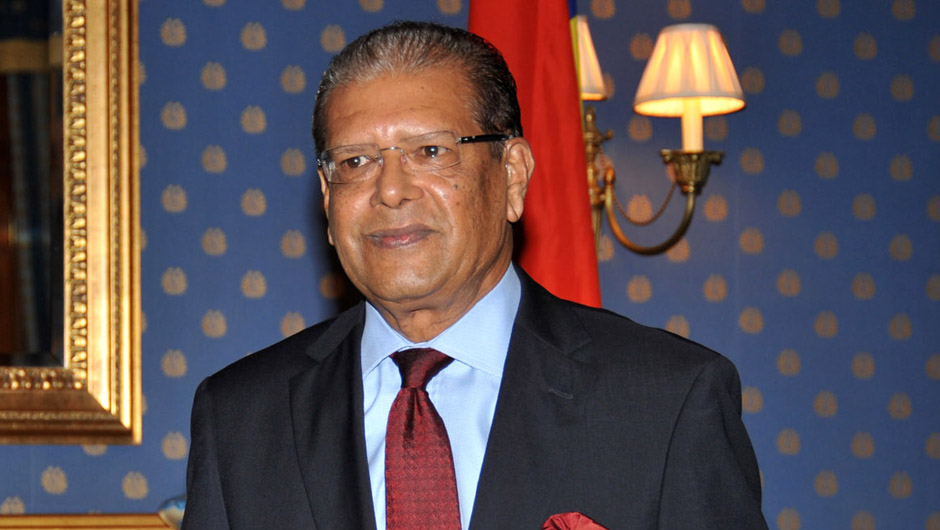Mauritius: Mauritius Government Profile
2013/08/18
Parliament chose its speaker, Rajkeswur Purryag, as president in July 2012 next the resignation of Anerood JugnauthPrime minister: Navin Ramgoolam
parliamentary democracy
9 districts and 3 dependencies*; Agalega Islands*, Black River, Cargados Carajos Shoals*, Flacq, Grand Port, Moka, Pamplemousses, Plaines Wilhems, Port Louis, Riviere du Rempart, Rodrigues*, Savanne
12 March 1968 (from the UK)
Independence Day, 12 March
12 March 1968; amended 12 March 1992
based on French civil law system with elements of English common law in certain areas; accepts compulsory ICJ jurisdiction with reservations
18 years of age; universal
unicameral National Assembly (70 seats; 62 members elected by popular vote, 8 appointed by the election commission to give representation to various ethnic minorities; members to serve five-year terms) elections: last held on 5 May 2010 (next to be held in 2015) election results: percent of vote by party - NA; seats by party - AF 41, MMM 18, MR 2, MSF 1; appointed seats - to be assigned 8
Supreme Court
Alliance of the Future or AF [Navinchandra RAMGOOLAM] (governing coalition - includes MLD, MMSM, MR, MSD, PMXD); Mauritian Labor Party or MLP [Navinchandra RAMGOOLAM]; Mauritian Militant Movement or MMM [Paul BERENGER]; Mauritian Militant Socialist Movement or MMSM [Pravind JUGNAUTH]; Mauritian Socialist Militant Movement or MSMM [Madan DULLOO]; Mauritian Solidarity Front [Cehl FAKEERMEEAH]; Mouvement Republicain or MR [Jayarama VALAYDEN]; Parti Mauricien Xavier Duval or PMXD [Xavier Luc DUVAL]; Rodrigues Movement or MR [Joseph (Nicholas) Von MALLY]; Rodrigues Peoples Organization or OPR [Serge CLAIR]
other: various labor unions
ACP, AfDB, AOSIS, AU, C, COMESA, CPLP (associate), FAO, G-77, IAEA, IBRD, ICAO, ICCt, ICRM, IDA, IFAD, IFC, IFRCS, IHO, ILO, IMF, IMO, IMSO, InOC, Interpol, IOC, IOM, IPU, ISO, ITSO, ITU, ITUC, MIGA, NAM, OIF, OPCW, PCA, SAARC (observer), SADC, UN, UNCTAD, UNESCO, UNIDO, UNWTO, UPU, WCO, WFTU, WHO, WIPO, WMO, WTO
four equal horizontal bands of red (top), blue, yellow, and green; red represents the blood shed for independence, blue the Indian Ocean surrounding the island, yellow has been interpreted as the new light of independence, golden sunshine, or the bright future, and green can symbolize either agriculture or the lush vegetation of the island
- Mauritius News
-
- AFGHANISTAN: UNWTO: International tourism – strongest half-year results since 2010
- BOTSWANA: Why governments need to support the financial sector to meet the unserved needs of smallholder farmers
- BOTSWANA: International Arrivals To Africa Reach More Than 18 Million In 2017
- BOTSWANA: Africa: USA-Africa - No Policy? Bad Policy? or Both?
- BOTSWANA: Africa: U.S. State Department To Get Experienced Diplomat in Key Africa Post
- BOTSWANA: Africa’s economic growth in 2016 was driven by East Africa
- Trending Articles
-
- CAMEROON: Cameroon: English-speaking Students Do Not Return to School
- CAMEROON: Cameroon: Giving Priority to Education
- BOTSWANA: Africa: U.S. State Department To Get Experienced Diplomat in Key Africa Post
- RWANDA: Rwanda: RDB's Good Problem - More Gorillas, Less Habitat
- RWANDA: Women Make Up More Than Half of Rwanda's New Cabinet
- UNITED STATES: Kenya Airways Gets Permit For Direct U.S. Flights



